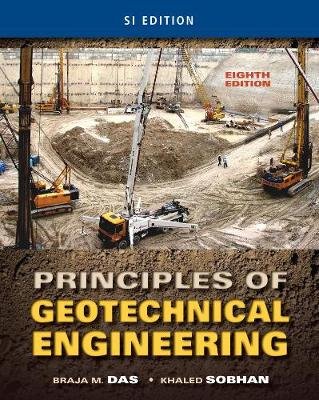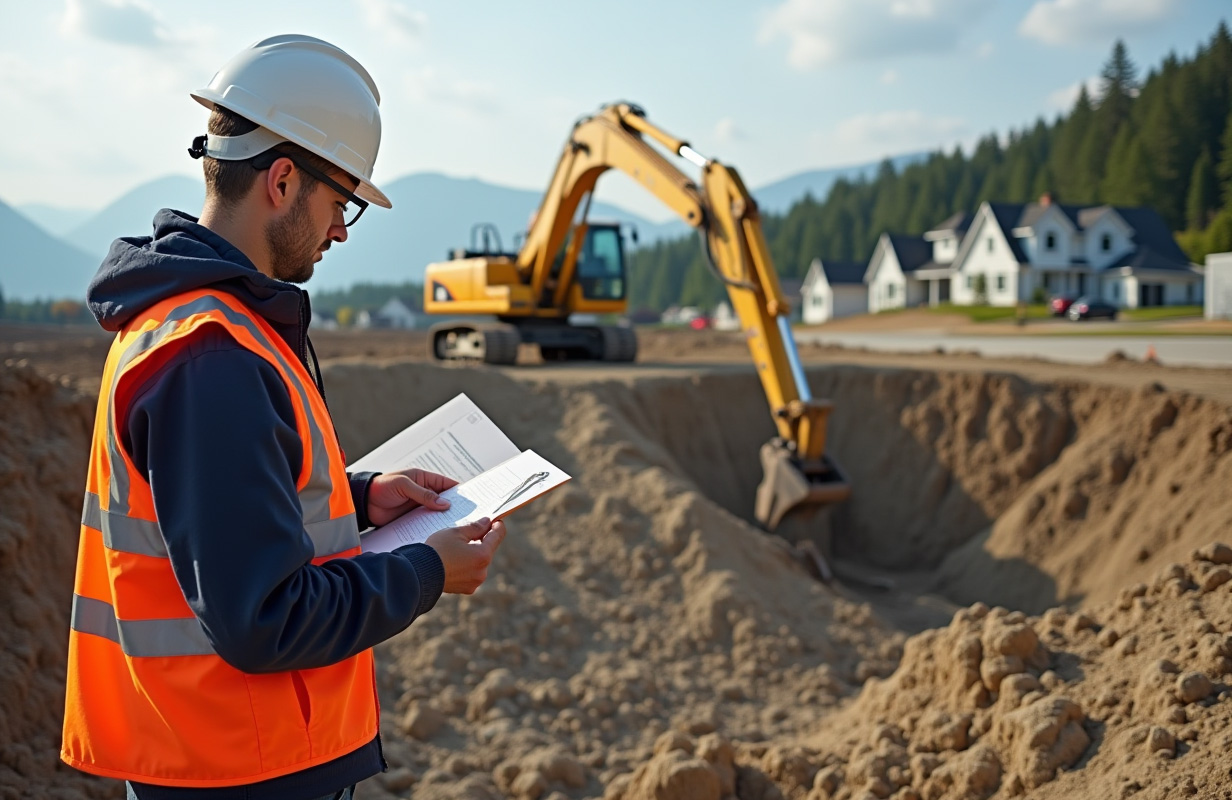The Importance of Geotechnical Engineering in Dealing With Ecological Challenges and Enhancing Construction Safety
Geotechnical engineering serves as a keystone in the crossway of ecological stewardship and construction security, offering critical understandings into the behavior of dirt and rock under various conditions. By implementing tactical site investigations and customized reduction actions, geotechnical designers play a crucial duty in guarding both human lives and environmental honesty.

Function of Geotechnical Design
Geotechnical design plays an essential function in the layout and construction of framework by resolving the actions of dirt and rock products under different problems. This field of engineering is important for comprehending the interaction in between structures and the ground, which consists of determining the load-bearing capacity of soil, examining security, and forecasting prospective settlement or failure.
Geotechnical engineers are accountable for conducting site examinations, which include sampling and screening soil and rock to collect information on their physical and chemical homes. This info is important for making structures, retaining walls, and other earth-retaining frameworks that guarantee safety and durability. Geotechnical design notifies the choice of suitable construction methods and products, therefore reducing risks connected with dirt habits.
Furthermore, the integration of geotechnical engineering concepts into metropolitan preparation and ecological management is important for addressing difficulties such as ground contamination and groundwater management. By recognizing geotechnical aspects, designers can develop sustainable remedies that improve the durability of facilities versus natural hazards, while also advertising environmental stewardship. Ultimately, the role of geotechnical design is crucial for attaining secure, long lasting, and eco mindful building practices.
Dirt Disintegration Mitigation
Dirt disintegration postures a significant danger to both environmental security and infrastructure stability, influencing about 24 billion tons of productive soil lost each year worldwide. This sensation is worsened by variables such as logging, urbanization, and poor farming practices. Geotechnical engineering plays a critical role in establishing reliable dirt erosion reduction techniques that secure both the setting and building projects.
One method involves the execution of erosion control methods such as plant life planting, which supports dirt with origin systems. Furthermore, the construction of keeping wall surfaces and terraces can efficiently lower surface runoff and safeguard prone locations from disintegration. Appropriate drain style is additionally vital; it decreases water build-up and directs excess drainage away from critical structures.
Moreover, geotechnical engineers employ soil stablizing strategies, such as the application of geotextiles and naturally degradable mats, to enhance dirt communication and protect against deterioration - all about geotechnical engineering. Normal surveillance and evaluation of erosion-prone sites allow prompt interventions, guaranteeing long-term sustainability. By incorporating these strategies, geotechnical engineering not only alleviates the effects of soil disintegration however also adds to the strength of infrastructure against environmental difficulties, ultimately promoting a more secure and a lot more lasting built atmosphere
Groundwater Security Methods
Groundwater acts as a crucial resource for drinking water, agriculture, and industrial processes, making its defense vital for ecological sustainability and public health. Reliable groundwater security methods are essential in minimizing contamination dangers and ensuring the durability of this source.

Routine tracking of groundwater high quality is additionally necessary, making it possible for very early discovery of contamination sources and promoting prompt remediation initiatives. Utilizing advanced technologies, such as geophysical studies and remote noticing, help in determining potential threats to groundwater reserves.
Moreover, public education and stakeholder interaction are critical, promoting neighborhood assistance for groundwater security initiatives. geotechnical specialist. By integrating regulative actions, technological developments, and neighborhood home participation, we can develop a detailed structure that safeguards groundwater sources while promoting lasting advancement and construction techniques
Landslide Risk Administration
Landslides position considerable dangers to both human safety and security and framework, making efficient threat monitoring methods important. Geotechnical engineering plays a critical function in identifying, examining, and mitigating landslide risks. An extensive understanding look at this web-site of incline security, dirt auto mechanics, and hydrology is vital for creating reliable danger monitoring plans.
The primary step in landslide threat administration entails detailed site investigations, which consist of geological mapping and soil screening. These examinations help engineers assess the possibility for landslides by identifying essential aspects such as incline angles, dirt composition, and water material. Making use of advanced innovations such as remote picking up and geophysical surveys can enhance the accuracy of these evaluations.
Once risks are determined, suitable reduction steps can be executed. These might consist of engineering remedies such as retaining walls, drain systems, and slope stabilization techniques. Monitoring systems ought to be developed to detect signs of ground movement and modifications in water levels, allowing for proactive interventions.

Enhancing Building And Construction Security
Building websites commonly present a myriad of risks that can endanger employee safety and security and project stability. Geotechnical engineering plays an important duty in improving building safety by giving necessary understandings right into subsurface conditions. With detailed dirt and rock analysis, geotechnical engineers can recognize potential dangers, such as dirt instability, groundwater concerns, and seismic susceptabilities, which might jeopardize the safety and security of building activities.
Carrying out geotechnical services, such as proper foundation layout and the usage of keeping frameworks, mitigates these dangers substantially. These remedies not only guarantee the stability of the structures being developed yet also produce a more secure working atmosphere for building employees. Additionally, rigorous surveillance and analysis of site problems throughout the building procedure are crucial. Making use of innovative innovations like ground-penetrating radar and inclinometer systems makes it possible for real-time data collection, allowing for timely treatments when threats are spotted.
Moreover, promoting a Full Report society of security through training and adherence to established safety and security methods even more boosts construction website security. By integrating geotechnical expertise into the preparation and implementation stages, building tasks can accomplish higher safety criteria, inevitably safeguarding employees and ensuring effective job conclusion.
Verdict
To conclude, geotechnical design functions as an essential self-control in promoting and tackling environmental challenges building and construction safety and security. With efficient soil disintegration mitigation, groundwater security methods, and landslide threat management, geotechnical engineers contribute to the growth of resilient facilities. The combination of these methods promotes a more secure building environment and improves the sustainability of civil design projects. Ultimately, the proficiency of geotechnical engineers is essential in guarding both natural deposits and human lives against possible risks.
Geotechnical design offers as a keystone in the junction of ecological stewardship and construction safety, giving essential insights into the actions of dirt and rock under different problems. Geotechnical engineering notifies the choice of ideal building techniques and products, thereby decreasing threats associated with dirt actions.
Geotechnical design plays an essential function in creating reliable dirt disintegration reduction strategies that protect both the environment and building jobs.
In addition, geotechnical designers employ dirt stabilization methods, such as the application of geotextiles and eco-friendly floor coverings, to boost soil communication and stop degradation. With detailed dirt and rock analysis, geotechnical engineers can recognize prospective threats, such as soil instability, groundwater concerns, and seismic susceptabilities, which might endanger the safety and security of building and construction tasks.